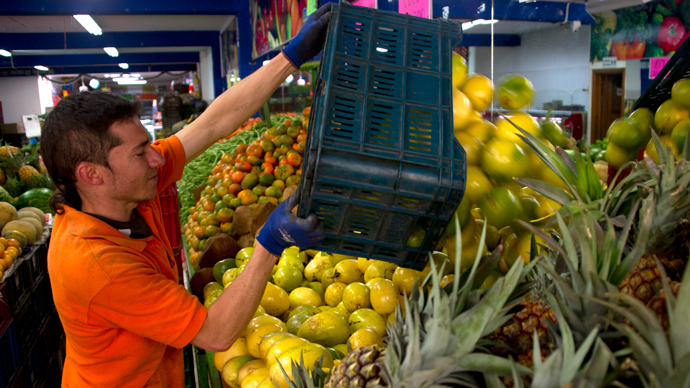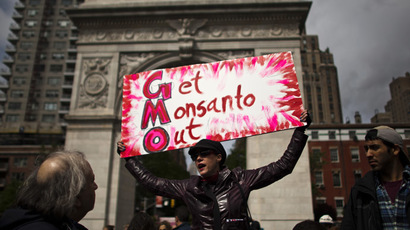Los Angeles may become largest GMO-free area in the US

Los Angeles is considering a ban on the cultivation, sale and distribution of genetically modified organisms, which would make the city the largest GMO-free zone in the US.
Los Angeles City Councilmen Paul Koretz and Mitch O’Farrell
introduced Friday a motion to curb growth and proliferation of
GMO seeds and plants within the city.
The councilmen said the proposal aims to protect local gardens
and city-grown food from future contamination from GMO seeds. The
motion would not impact the sale of food containing GMO
ingredients, however.
GMO seeds are mostly used only by large-scale farming operations,
of which none exists in Los Angeles city.
"The pending ordinance would be symbolic more than anything
else, but we do feel it's an important step to have the
second-largest city in the nation declare itself as against
genetically modified seeds," said head of Learning Garden and
Seed Library of LA David King, who assisted in creating the
motion.
King told The Huffington Post that if GMO seeds begin to be
marketed to smaller farmers, the ban would be in place to protect
home-grown food.
O’Farrell said suspicions that powerful new pesticides -
incorporated into plant DNA via genetic engineering - have
devastated worldwide honeybee populations by 40 to
50 percent in 2012 is the “canary in the coal mine” for
GMOs. California’s almond crop, which supplies 80 percent of US
almonds, has fallen on tough times given almonds rely so much on
bees.
“A growing number of problems are being traced to GMOs,"
Koretz said in a statement. He cited examples like "the
evolution of 'superbug' insects which are growing immune to the
pesticides engineered within GMO crops" and "'seed drift'
(for example the recent finding of GMO-pollinated wheat growing
in an Oregon farmer’s field)."
Some smaller US localities have banned the cultivation of GMOs,
but LA would be by far the biggest US city to do so.
Genetic engineering on plants, for example, occurs when a gene
from another plant species, bacterium or virus is inserted into
the organism's DNA.
An international group of over 90 scientists, academics and
physicians released a statement early this week saying there is
no scientific consensus on the safety of GMOs for humans, as
proponents like Monsanto attest, and that any GMO cultivation should
take internationally-approved precautions.
“The claim that it does exist is misleading and misrepresents
the currently available scientific evidence and the broad
diversity of opinion among scientists on this issue,” the
statement said.
“Moreover, the claim encourages a climate of complacency that
could lead to a lack of regulatory and scientific rigour and
appropriate caution, potentially endangering the health of
humans, animals, and the environment.”
A public effort to require all GMO foods and seeds to be labeled
as such throughout the entire state of California failed a year ago. Opponents of Proposition 37 -
like Monsanto and Kraft - helped donate around $46 million to the
cause against labeling. Supporters of labeling raised just over
$9 million in that defeat.
Voters in Washington State will consider a labeling requirement
next month. Opponents of Initiative 522 - led by questionable fundraising tactics by industry trade
group Grocery Manufacturers Association - have pumped $17 million
into the effort to defeat labeling. Supporters have raised over
$5 million.
A lawsuit filed by the state against the GMA claimed that the
group violated campaign disclosure laws, and forced it to reveal
donors to its “Defense of Brands Strategic Account.”
Out of the 34 companies who doled out over $7.2 million into the
initiative the top three were PepsiCo, which contributed $1.6
million, and Nestle USA, Inc. and The Coca-Cola Co., which spent
over $1 million each.














